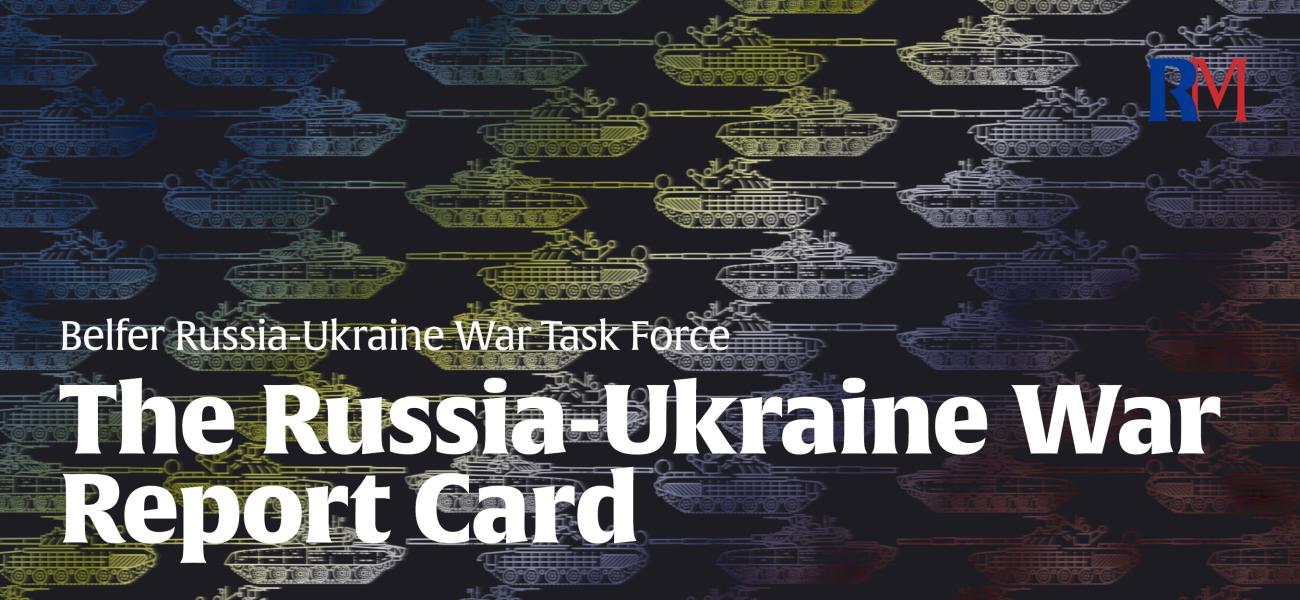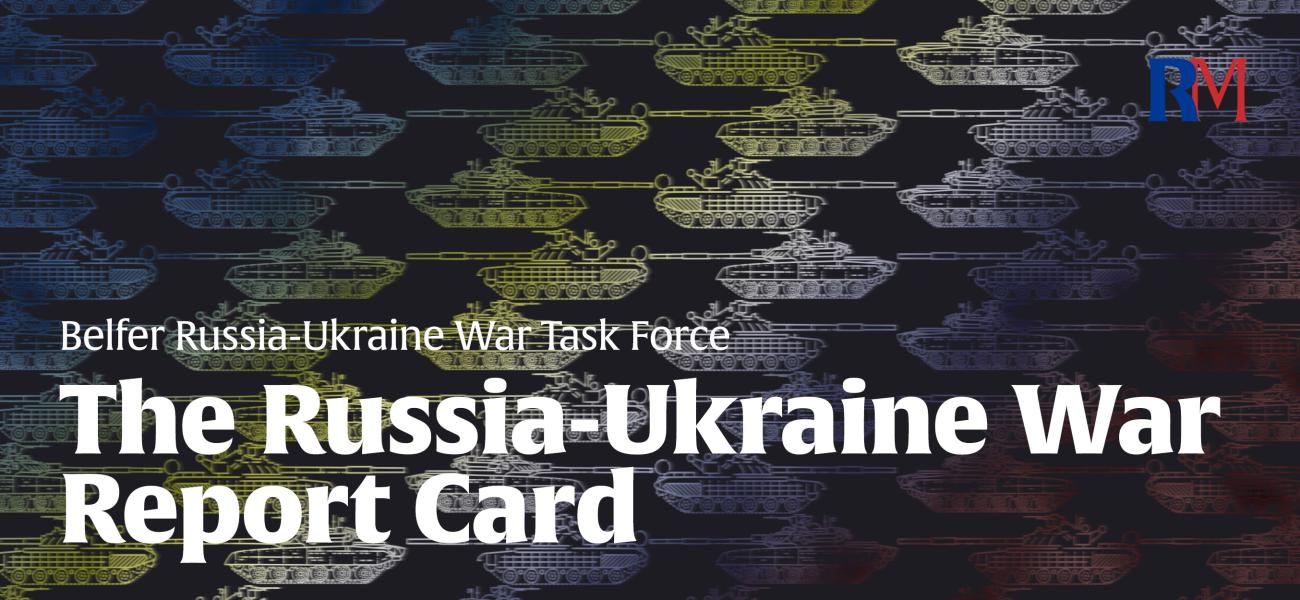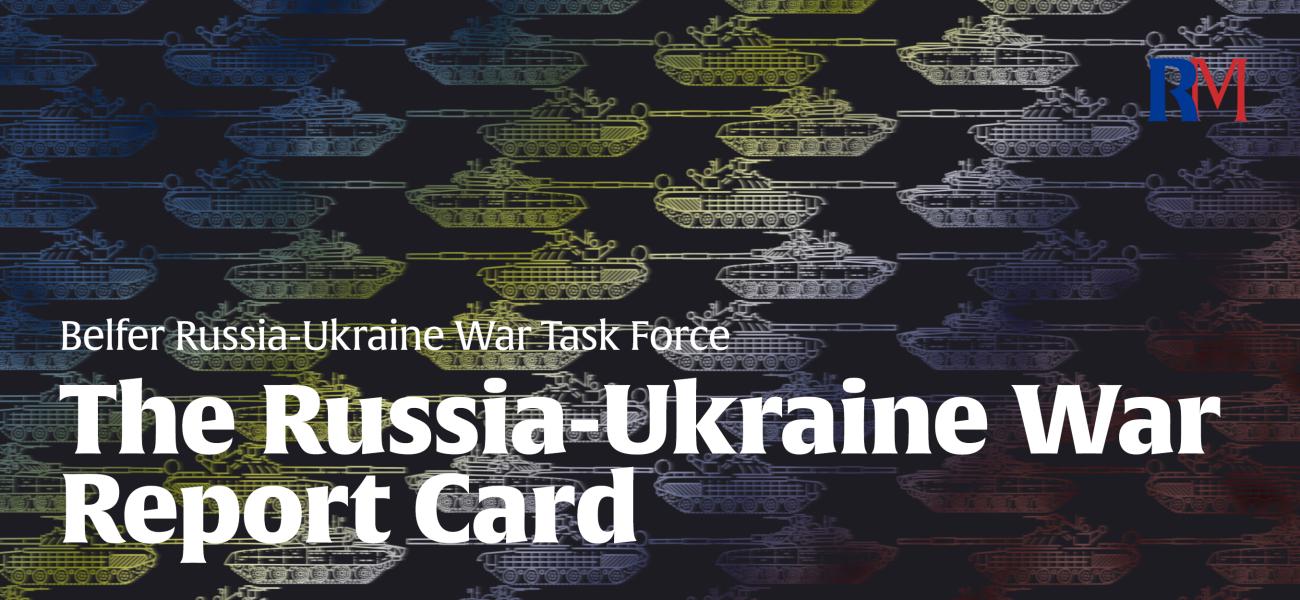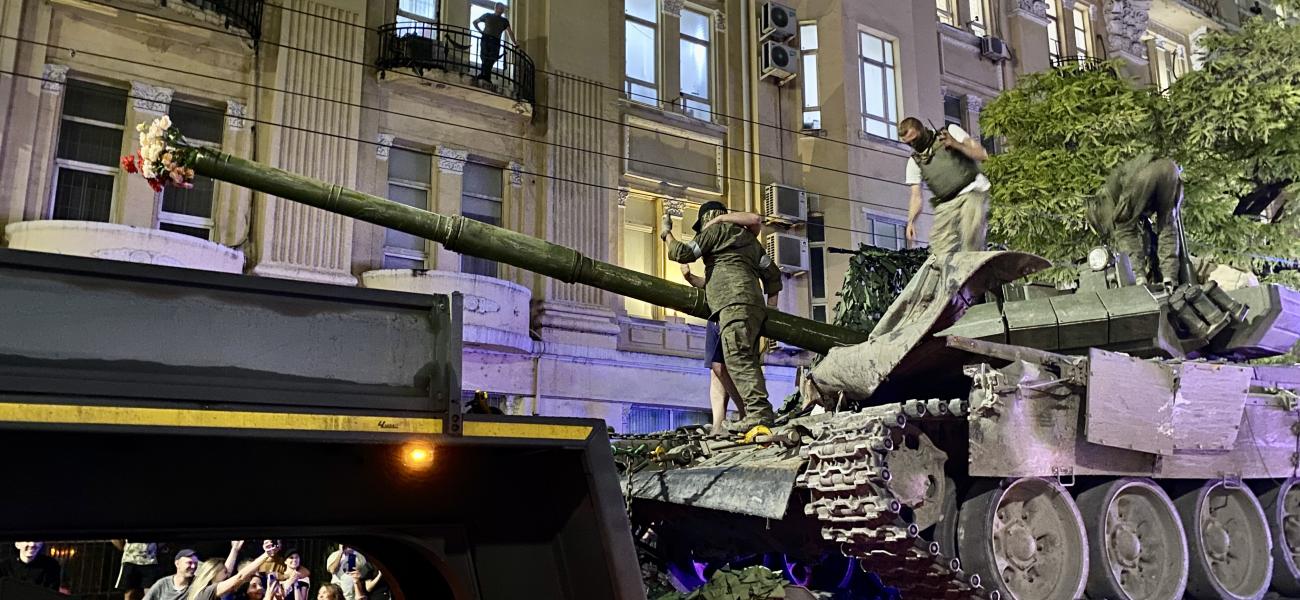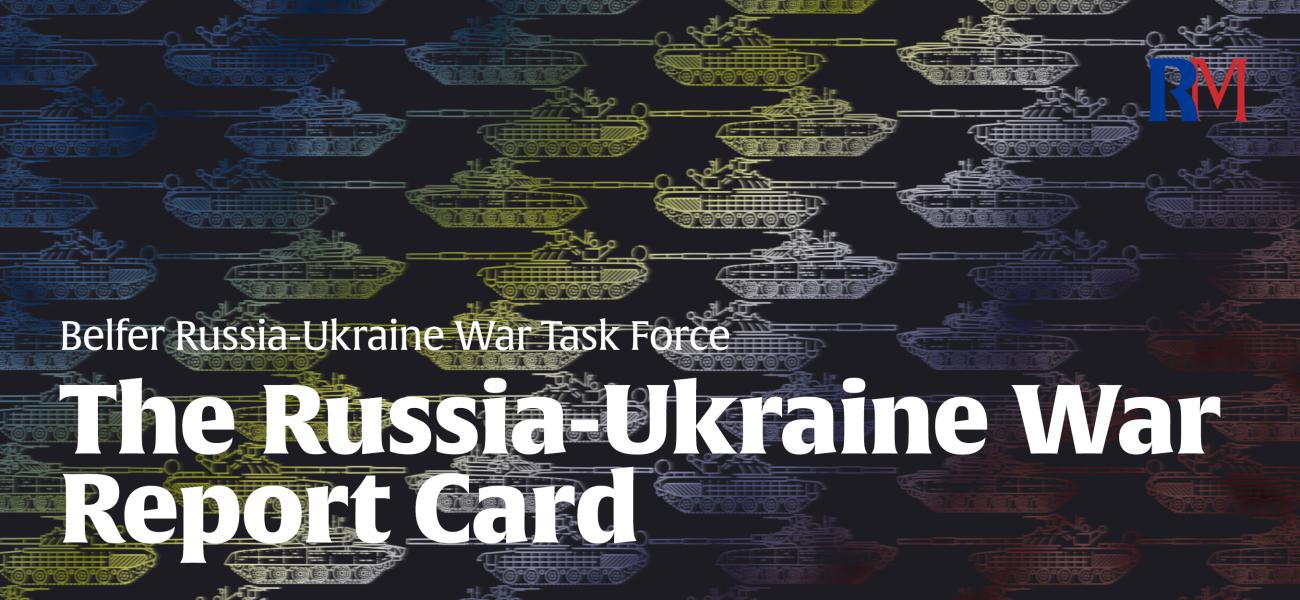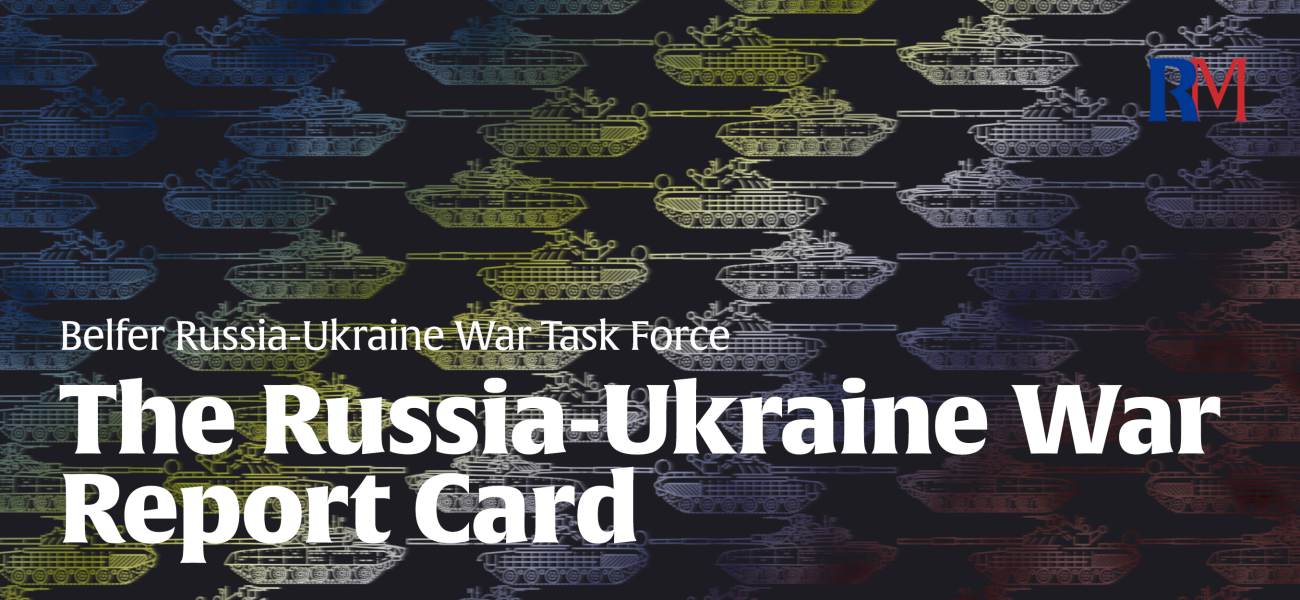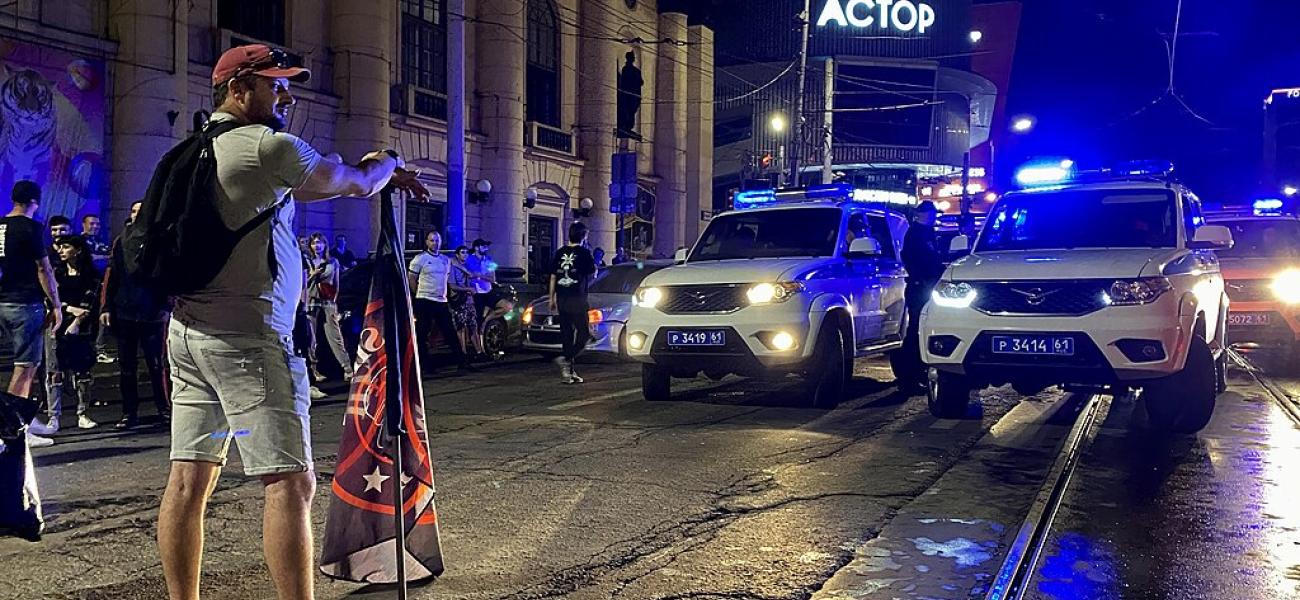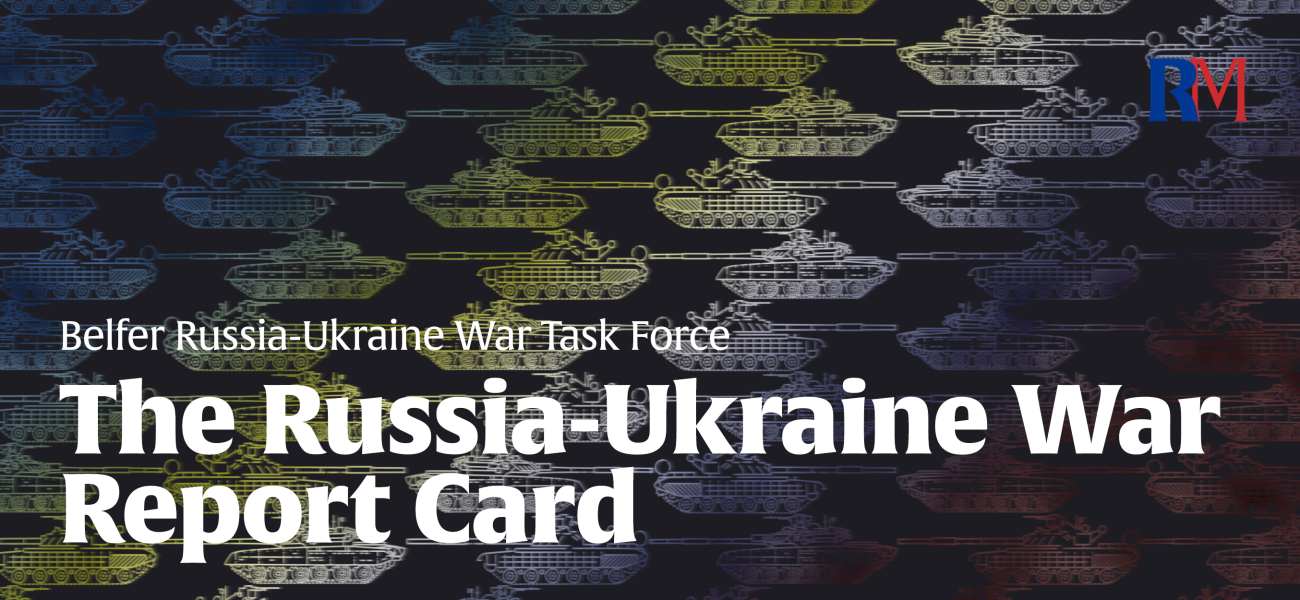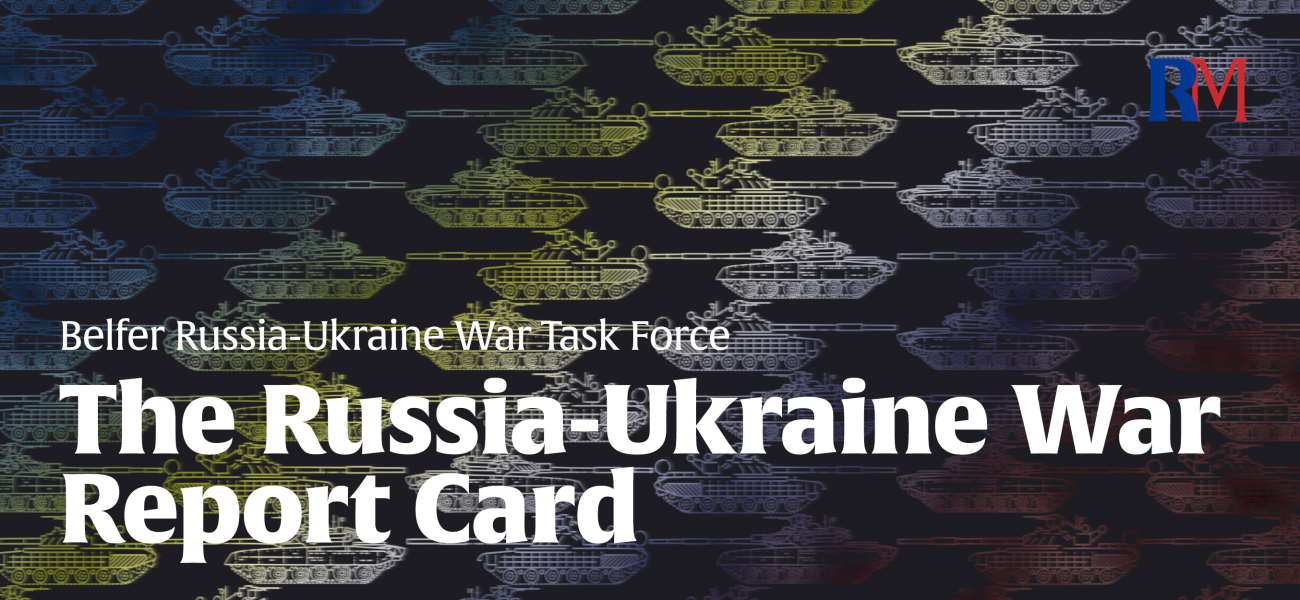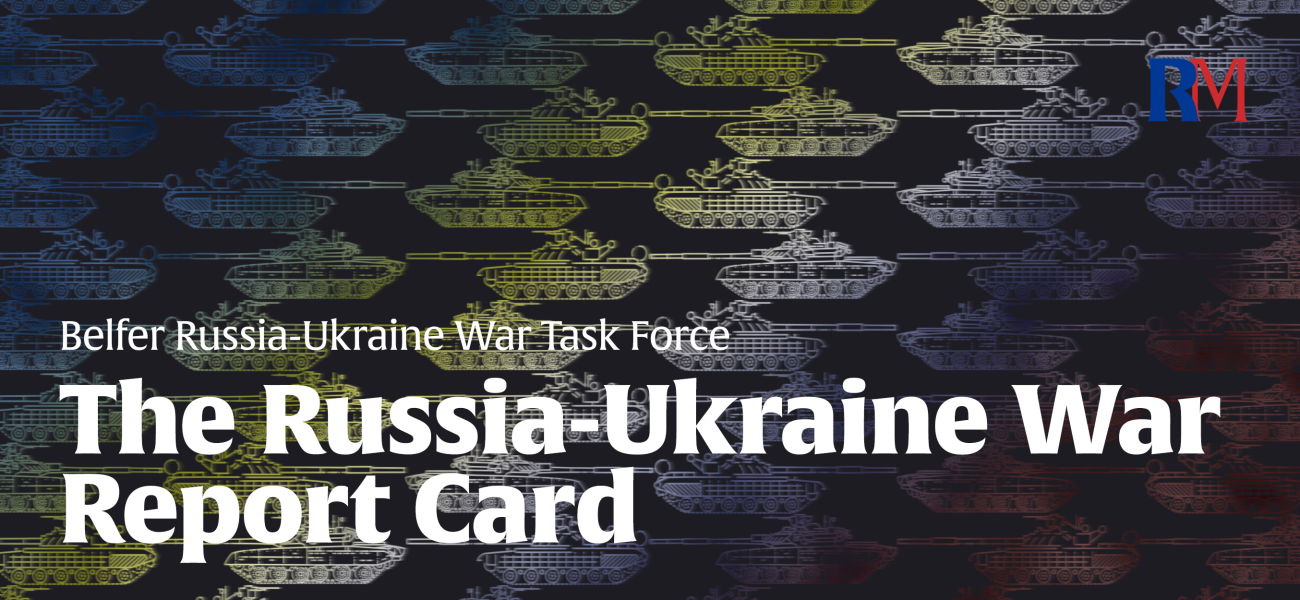July 25 update: No significant territorial changes. Russia struck a Ukrainian port on the Danube, while drones hit two buildings in Moscow. Net territorial change in the past month: Ukraine +12 square miles.
In the Thick of It
A blog on the U.S.-Russia relationshipThe Russia-Ukraine War Report Card, July 18, 2023
July 18 update: Continued territorial stalemate. A drone attack damaged the Kerch Strait Bridge to Crimea, and Russia launched a retaliatory strike on Odesa. Net territorial change in the past month: Ukraine +35 square miles.
The Russia-Ukraine War Report Card, July 12, 2023
July 12 update: No major territorial changes. NATO said Ukraine will eventually become a member, waiving the membership action plan and offering support, but gave no timeline. Net territorial change in the past month: Ukraine +37 square miles.
Post-Mutiny: Trust in Prigozhin Below Margin of Error, Support for Peace Talk Grows
In the aftermath of PMC Wagner's rebellion, poll results reveal the shifting views of Russians toward Prigozhin, Putin and more.
July 5 update: No significant territorial change. Ukraine and Russia accused each other of planning to attach the Zaporizhzhia Nuclear Power Plant. Net territorial change in the past month: Ukraine +143 square miles.
The Russia-Ukraine War Report Card, June 28, 2023
June 28 update: No significant territorial changes. In the aftermath of a mutiny that saw Yevgeny Prigozhin and his Wagner troops march largely unimpeded toward Moscow on Saturday, the fate of the mercenary group and its leader remain uncertain, and the impact the rebellion may have on the Ukrainian war remains uncertain.
The following is a selection of views on the impacts of the mutiny led by Yevgeny Prigozhin on June 23-24, shared by defense analyst Michael Kofman of the Russia and Eurasia Program at the Carnegie Endowment for International Peace. Kofman originally posted these and other takeaways via Twitter on June 25:
-It wasn’t a good showing for Russian state capacity or competence to respond to this kind of challenge.
-Wagner was unexpectedly successful because they moved much faster and more deliberately than Russian forces, which seemed to lack orders, largely allowing Wagner units past unopposed.
-But Prigozhin also miscalculated in part because this was an act of desperation. He had limited aims, and didn't appreciate the implications of his mutiny. I was puzzled by his theory of victory. A run on Moscow to do what? Get attention? Storm the Kremlin with a battalion?
-Putin’s inaction & the slowness of the Russian response has become typical. I’ve often described him as a master procrastinator. The problem with Wagner was growing, it would reach a crisis point after the June 10 declaration by MoD [of the need for PMCs to sign contracts with MoD], Putin was likely warned and did nothing.
-Prigozhin had declared that Wagner would not sign contracts with the Russian military, designed to neuter their autonomy. Theatrics ensued, but this standoff was clearly going to end poorly. The trajectory was a downward spiral from his May ultimatums leading into a crisis.
-Wagner’s autonomy will end in the context of this [Russian-Ukrainian] war. In states like Mali the situation might be different.
-After Bakhmut, the military was far less dependent on Wagner. Folks often conflated Bakhmut for the entire Russian winter offensive, and Wagner’s role as though it was omnipresent on the front. It was quite narrow, and Wagner was not used for defense in the south.
-My conclusion is that Prigozhin ultimately lost. Wagner will also lose out. But Putin lost as well, and the regime was wounded.
The Russia-Ukraine War Report Card, June 21, 2023
June 21 update: No significant territorial change. Zelensky said counteroffensive is going “slower than desired,” but compared it to fall counteroffensive which eventually had sudden breakthrough. Net territorial change in the past month: Ukraine +91 square miles.
The Russia-Ukraine War Report Card, June 13, 2023
June 13 update: Ukraine made small advances in Zaporizhzhia and Donetsk. Zelensky declared that “counteroffensive and defensive actions are taking place.” Net territorial change in the past month: Ukraine +96 square miles.
June 6 update: No major territorial changes. The Kakhovka Dam in southern Ukraine was blown up, flooding territory near Kherson. Net territorial change in the past month: Ukraine +47 square miles.

